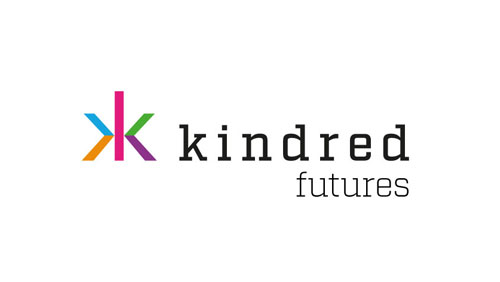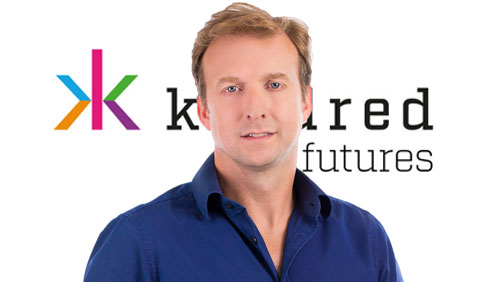Lee Davy talks to Will Mace the Head of Kindred Futures to discuss the role that Artificial Intelligence could have in identifying problem gamblers before they develop a problem.
*To download this audio, right click and save link as*
The technological age is whizzing to the finish line, and before we get there, we are going to bear witness to the full capability of Artificial Intelligence.
And when it does strike us with the impact of a Mike Tyson uppercut, what will it mean to the gambling industry?
After reading that Kindred Futures held a group brainstorm on the topic of AI and how it could be used to identify problem gamblers before they develop a problem, I sat down with Will Mace, the Head of that department to seek his view and this is what he had to say.
Talk a little about Kindred Futures and the job you do
“Kindred Futures is Kindred Group’s strategic or transformational, innovation arm. Our particular flavour of innovation is open innovation, so we seek to explore strategically interested stuff with partners that usually come from the start-up community.”
Where do you get your ideas from?
“Ideas usually come from customers, and we try and draw insights from various methods we have to interact with them, understand what their needs are and how we might be able to meet them. We also get inspiration from other industries. It’s far more interesting to me to look at the retail industry or financial industry than look at what our competitors are doing.
“It’s a common misconception that innovation is about having great ideas. Ideas are the easy part, what makes an idea good is that it’s based on real insight or a real customer.”
I would like to talk about your recent meeting where the topic of discussion was the use of AI to pinpoint problem gamblers before they developed a problem. Where did the idea come from?
“Identifying problem gamblers is something we do day in and day out. The system we have in place is quite effective but rudimentary. We have all these advancements in technology, AI, space and AI being used to detect cancer, beat humans at poker, and write government military strategy.
“Seeing AI used in these places made us wonder if we could use this in some shape or form where it’s important to us like problem gambling. That’s the genesis of it. We wanted to explore the art of the impossible.”
 Who attended?
Who attended?
“We deliberately had a real mix. We had a number of academics in the field of addiction psychology. The two professors there had spent many years studying addiction and gambling addiction in particular, and they are certainly the leading authorities on this kind of addiction in the country if not the world.
“We wanted to marry their expertise with experts in AI. We wanted to bring the two disciplines together, so we had academics from the AI world and a number of CEOs from small early stage companies who were doing some interesting things with AI.”
What were the main learning points?
“We learned that there was huge potential to use AI with this challenge. We all came out of the session thinking that the foundation done by the addiction psychologists could be multiplied in effectiveness by using tools that allow a thousand more data points to be considered and a hundred thousand more variables or interactions of data points to be considered. We felt there was huge scope to do something interesting and valuable in this space.”
Are we going to plug these addiction experts into AI?
“The answer is always in the data. Psychologists have identified a number of behavioural traits and indicators of those traits that can be seen in their behaviour on site. Where this gets complicated is it manifests itself very differently with different people.
“A blanket application only gets you so far but not as far as we would like to go on the protection front. So that’s what you would get if you took an addiction psychologist and got them looking at the different behaviours on site. If you apply the tools and techniques of AI, you can massively augment their ability to identify different combinations of behaviour and bring data sources from the outside such as social media information, financial information, or any other data that wouldn’t be necessarily available for an addiction psychologist.”
What were the traits you talk about?
“We didn’t get into the reasons. But we did get into how a developing problem would manifest i tself in certain people. On the assumption that the better we could understand how it manifests itself the better we can design something to detect it the better we can detect it the more effectively you can intervene if that’s the appropriate treatment?”
tself in certain people. On the assumption that the better we could understand how it manifests itself the better we can design something to detect it the better we can detect it the more effectively you can intervene if that’s the appropriate treatment?”
How do you intervene?
“There are a number of different intervention routes, but it wasn’t the subject of the roundtable discussion. What do you do when you think there is a problem? Particularly because gambling addictions are cumulative, you don’t suddenly turn around one day and have a problem. It’s something that grows over time and that period can be long or short. It’s a case of tracking behaviours over a period of time and seeing if they fall into the main patterns of addictive gambling.”
I read that doing this work was critical not just from a well-being perspective but also a commercial one. Why is it commercially sound to find the problem gamblers ahead of time?
“The longer a customer stays and play the more valuable they are The ideal customer is one that plays frequently and over a long period of time. Players who develop problems don’t play for a long time. There might be a short-term profit, but over the long term, that problem gambler stops being a customer. We as a business would rather have a player who has a long happy relationship with us and is sustainable for them.”
What about the problems AI could introduce to the gambling industry, for example predicting the outcome of sporting events with a high degree of accuracy?
“If IBM Watson gave racing tips every punter could have access to those tips, so you have the most data-driven view of an outcome of an event – what would that do to the gambling behaviours? I don’t know the answer. But if a gambling company had the same access to the data what would happen to prices? I haven’t worked through both streams of logic to understand what it does to gambling and the enjoyment of the player.”






